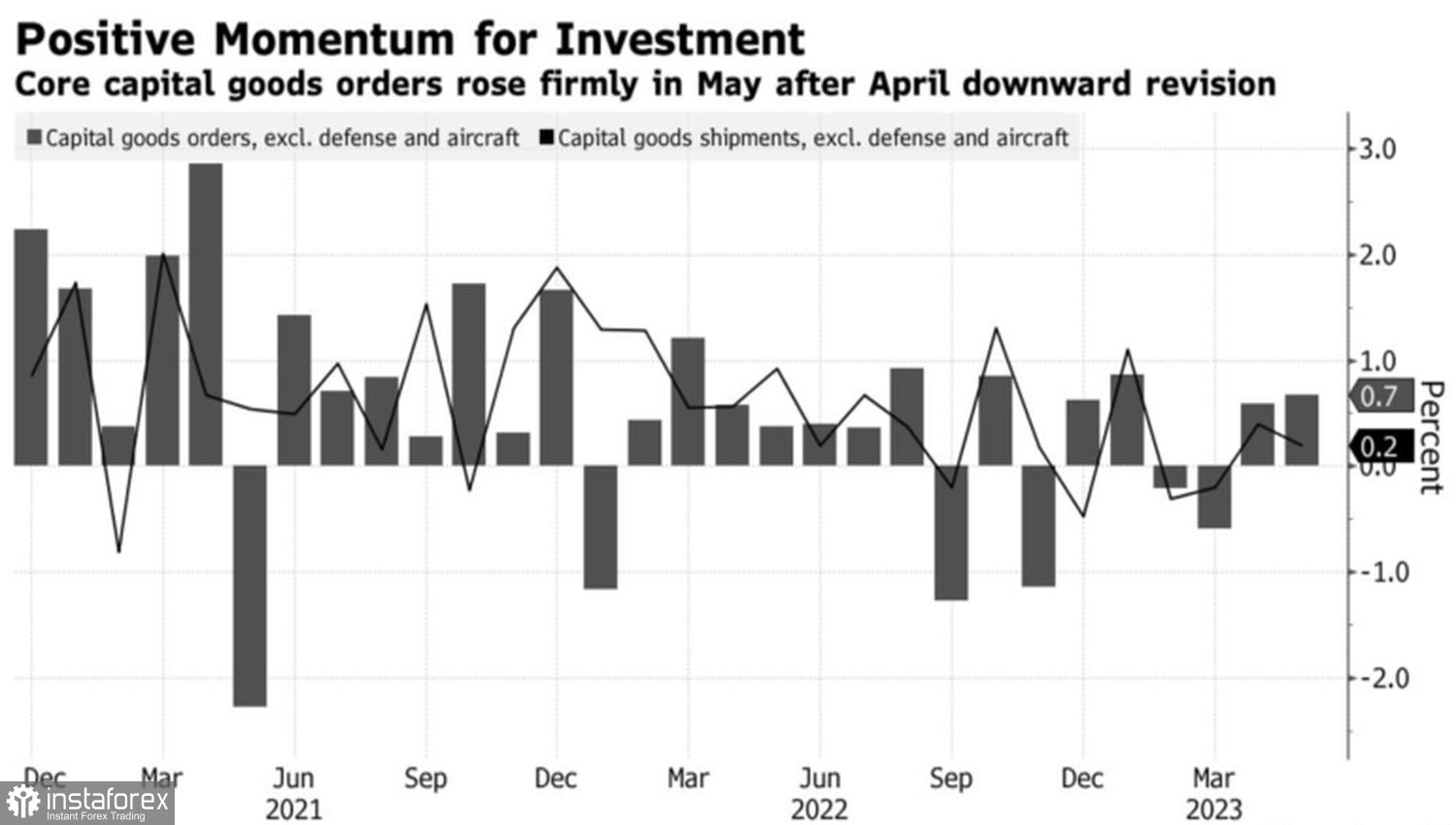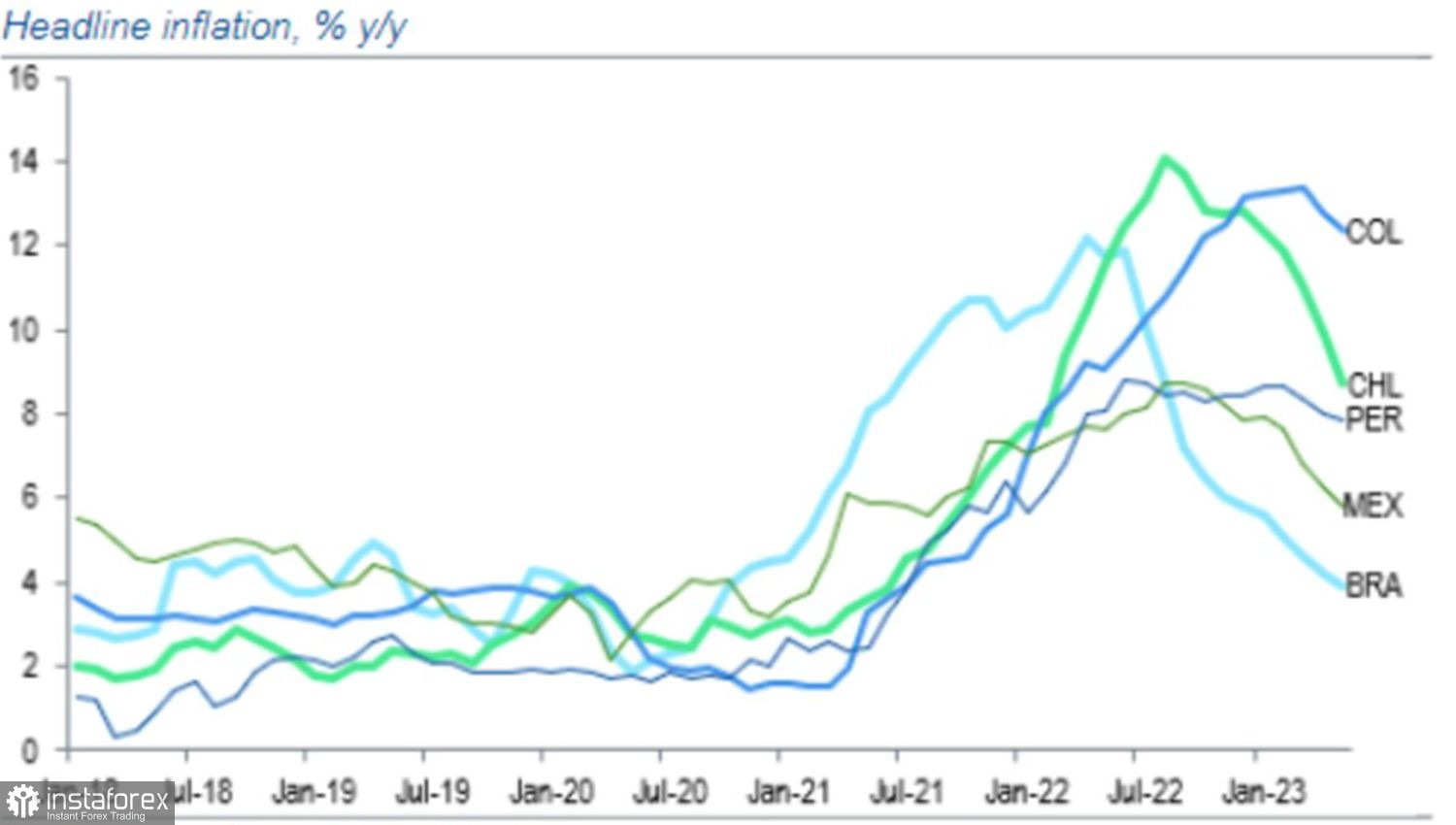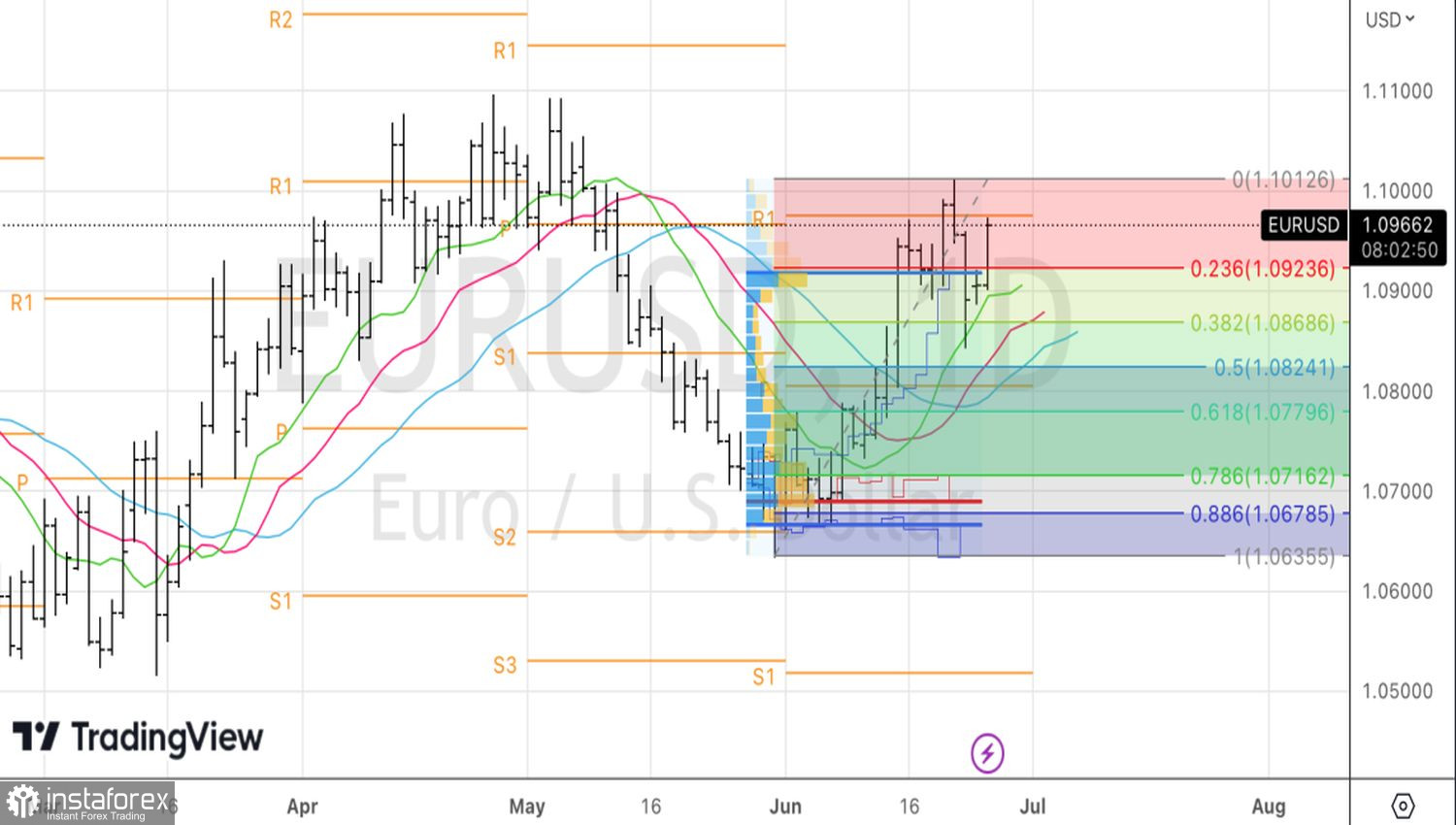The sum does not change when the addends change places. Europen Central Bank President Christine Lagarde's statement that there should not be expected a peak in ECB rates in the near future is nothing more than a derivative of "we will continue to tighten monetary policy." But the markets need news. They are tired of chewing over what was already known yesterday. Therefore, the new wording from the head of the European Central Bank allowed EUR/USD to jump towards the convergence area of 1.0965–1.0975. Will it last?
Representatives of the Governing Council flaunted new phrases during the forum at Sintra, Portugal. Well, Lagarde, with her slow-reaching ceiling for the deposit rate. Bank of Latvia Governor Martins Kazaks surprised the financial markets altogether. He stated that the eurozone economy is weak, but not weak enough for inflation to decline. The official seems to believe that it needs help. Ruin it with the continuation of the monetary restriction cycle. And then the recession will do everything necessary for the ECB. I rush to disappoint: history knows many examples when one recession was followed by another, but it didn't always help.
The eurozone is truly on shaky ground, while the United States continues to delight the eye with new macro statistics. Durable goods orders in May exceeded Bloomberg experts' forecasts, serving as further evidence of the strength of the American economy. The Fed will likely be able to bring the U.S. to a soft landing. Meanwhile, the eurozone will suffer from a recession. Where is the logic of the EUR/USD rally?
Dynamics of U.S. durable goods orders

The movements of the main currency pair became surprisingly fast in June. The roller coaster ride suggests manipulation by the major players. They want to lure the plankton as high as possible to sell the euro later. And there is no better reason than the "hawkish" rhetoric of ECB representatives or expectations of acceleration in German and European inflation.
I just want to ask, if the Fed really manages with just one rate hike in federal funds, and the ECB takes two more steps, will EUR/USD definitely rise? I don't think that's the right answer. Markets reward central banks for their boldness. Look at how well the currencies of Latin America are doing now. And why is that? Their issuers were the first to tighten monetary policy, achieving a slowdown in inflation. Well-done work is a blessing for currencies.
Dynamics of Latin American currencies


It is not certain that if the central banks of Latin America start easing monetary policy, their currencies will depreciate. By that time, Britain, the eurozone, and other developed countries will be heading towards recession. Thus, the factor of just one rate hike in federal funds should not be interpreted as negative for the U.S. dollar. The Fed has done an excellent job, so its currency should be rewarded.
Technically, the inability of EUR/USD to break above the convergence zone of 1.0965–1.0975 is a sign of bulls' weakness and a reason for selling.
 English
English 
 Русский
Русский Bahasa Indonesia
Bahasa Indonesia Bahasa Malay
Bahasa Malay ไทย
ไทย Español
Español Deutsch
Deutsch Български
Български Français
Français Tiếng Việt
Tiếng Việt 中文
中文 বাংলা
বাংলা हिन्दी
हिन्दी Čeština
Čeština Українська
Українська Română
Română

